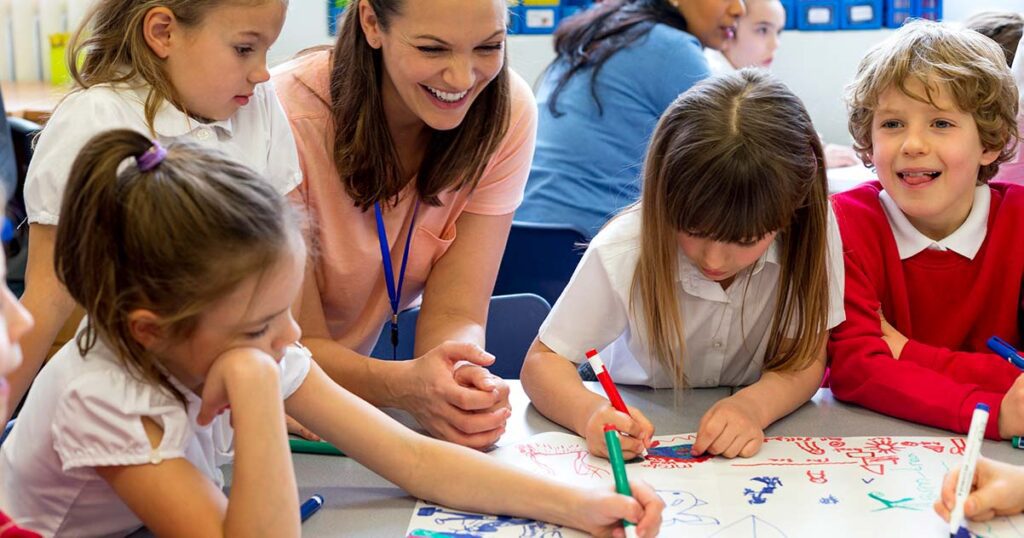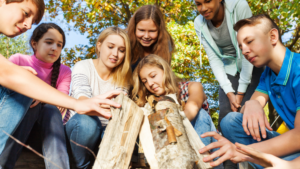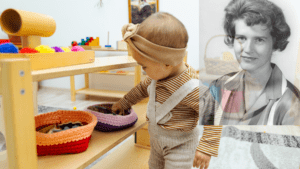Montessori education is a holistic approach that believes in the significance of community involvement in the development of children. The role of the community is not just limited to providing a supportive environment for a child’s learning and development, but it also plays a crucial part in shaping the child’s life in and out of the classroom.
We at “Wisdomnest” believe that children are the best explorers in the world, and so does the Montessori philosophy. The Montessori philosophy of education is based on the principles of freedom, community, and creativity. This philosophy is built on the idea that children are inherently curious and creative.
What is Community in Montessori Education and Why is it Important?
Children are not born with their teachers’ knowledge, but they are born with the need to build on their experiences. They are also inherently social beings who learn through contact with others. This is why Montessori schools emphasize community life and the benefits of peer interaction.
A Montessori community is a group of people who share similar interests and either live in the same geographic location or participate in the same online community. It helps people connect with other like-minded individuals and provide them with knowledge, access to resources, and support.
Elements of Montessori Community
The Montessori community includes the child, parents, teachers, administrators, and other stakeholders. It also includes extended family members, friends, and neighbors, the prepared environment, and Montessori materials. This diverse group of people provides a unique and varied perspective on life, which can greatly benefit a child’s personal and academic growth.
Parents’ Role in Community Involvement
Parents are encouraged to involve their children in community activities outside of school, such as volunteer work, attending cultural events, and participating in local clubs or organizations. By doing so, children can learn about different cultures, develop social skills, and gain a sense of community responsibility. It also helps them learn to interact with people from different backgrounds, which is an essential life skill in today’s global society.
Teachers’ Role in Community Involvement
Teachers also play a vital role in fostering community involvement. They organize school events like field trips and community service projects that encourage children to engage with their community. Teachers work with community members to bring in guest speakers or organize workshops that expose children to different professions and interests. This helps children learn about various career paths and make informed decisions about their future.
Administrators’ and Stakeholders’ Role in Community Involvement
Administrators and other stakeholders can make a significant impact on community involvement. They can work with local businesses to create internship opportunities for high school students or organize community-wide events that involve the school and its surrounding neighborhoods. Encouraging community involvement helps children develop a greater sense of connection to their community and builds stronger relationships between the school and the surrounding community.
It is important to note that Montessori schools have much in common with traditional schools, but one major difference is their focus on community life and peer interaction. When groups, children’s relationships foster curiosity and an interest in learning new things. It allows children to form meaningful relationships with adults and peers while honing their social skills.
Benefits of Community Involvement for Children
There are numerous benefits of community involvement in a child’s development. Some are listed below.
- Develop social skills
- Build self-confidence
- Teach responsibility and empathy
- Provide opportunities for positive activities
- Form meaningful relationships with adults and peers in the community
- Learn about different cultures and professions
Encouraging and promoting community involvement is essential to help children become responsible citizens who can contribute to the betterment of society.
What Does the Environment Look Like in a Montessori Community?
When considering enrolling their child in a Montessori school, many parents have questions about the environment and the benefits of this type of education.
In a Montessori environment, adults and children work together as one community with the goal of learning from each other and their surroundings. This kind of learning environment provides a safe space for all children, regardless of their skill level or background, making it a community for all.
The Montessori environment values the individual over the group, fostering independence and self-esteem instead of competition. Montessori spaces are designed to be aesthetically pleasing and provide children with a calming space to work and play independently, which helps them focus on the task in hand. This makes it ideal for children who have trouble with transitions or need a break from intense stimuli to reorient themselves.
If you’re looking at Montessori schools for your child, remember these facts about the environment and how it helps them become independent and responsible adults.
Take Away
The Montessori philosophy emphasizes the crucial role of socialization and community in an individual’s life. In a Montessori environment, children have the chance to collaborate with their peers by doing group projects and receive guidance from adults when needed. Through these interactions, children learn to manage their time and take responsibility for their actions from an early age.





